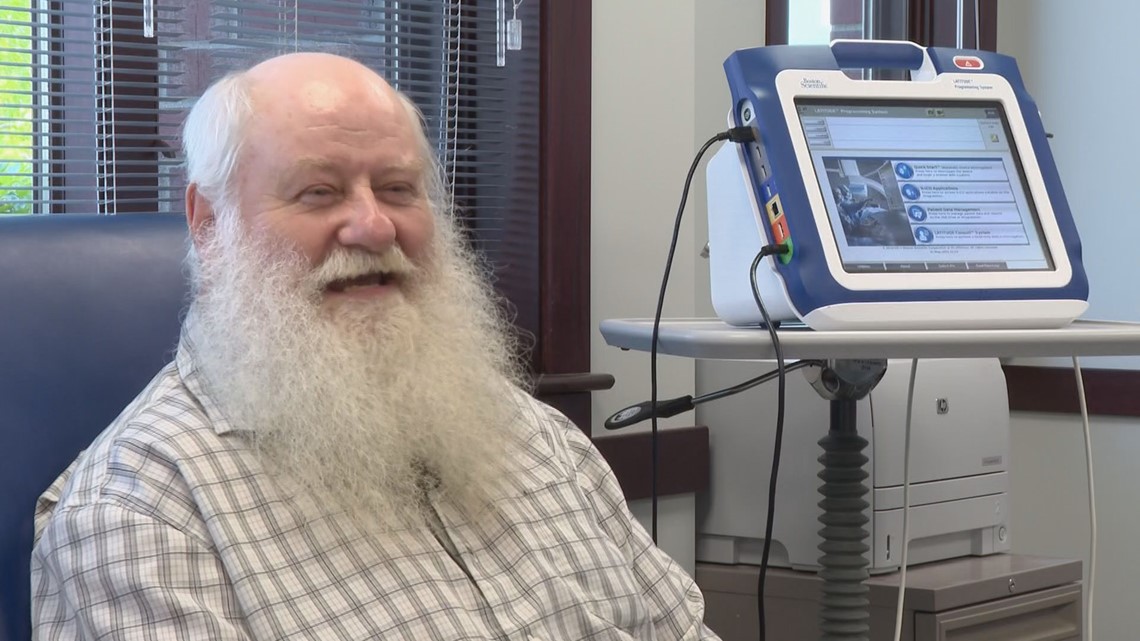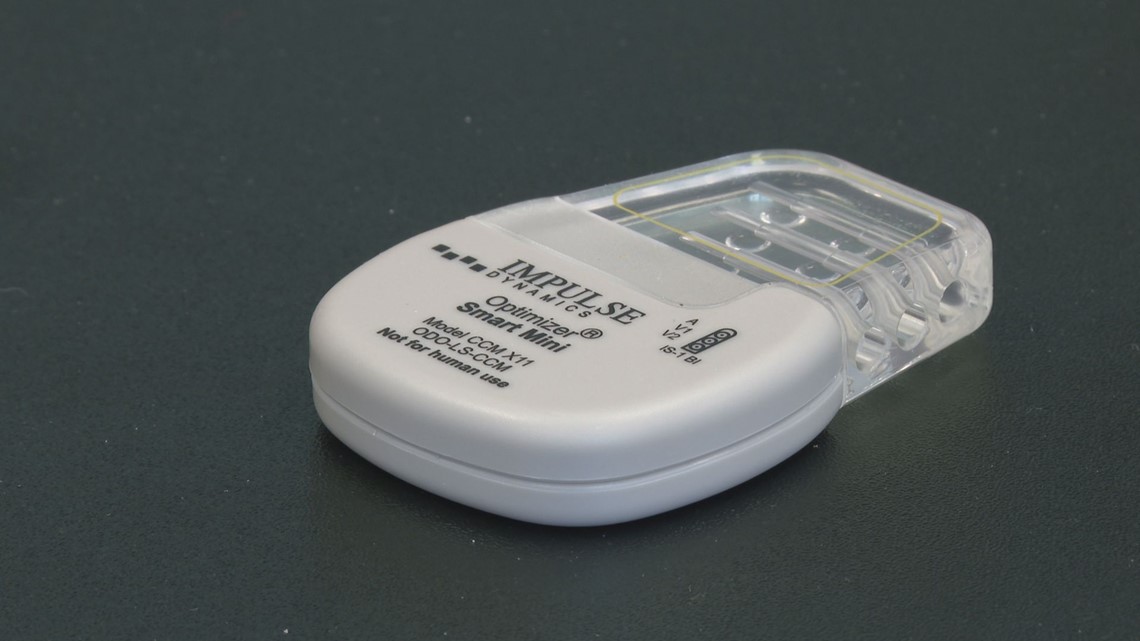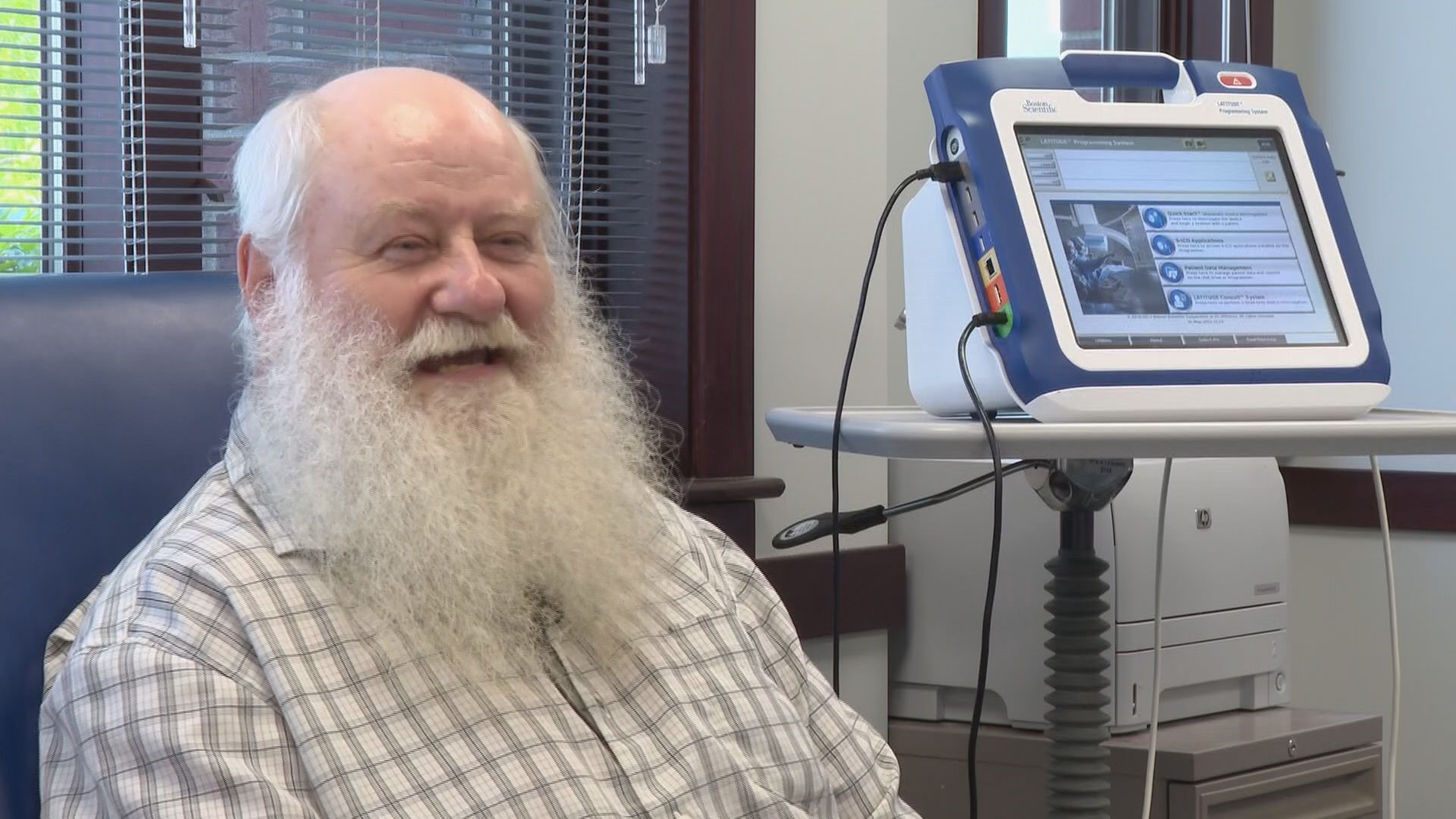GRAND RAPIDS, Mich. — It is tough to tell Tracey Bennett to slow down. He loves to hunt and fish, and had cattle on his property.
13 years ago, he had a heart attack. Afterward, he had a pacemaker and defibrillator placed in his chest. It was all going well, until the defibrillator went to work.
"It scared the tar right out of me," said Bennett, "I was in the barn, and I was putting the cow away and it hit me. They said don't touch nobody or don't touch no metal cause it will give a worse shock. So, I just kind of had to bounce over gates to get out of the barn....I finally had to lay down. It hurt so much that I lay down. I just could not stand up."
He said his defibrillator went off eight times, calling the experience "scary. Just scary."
After that, Bennett was forced to slow down. He would get out of breath quickly, and had little energy.


However, his doctor had an idea: A cardiac modulation device, or CCM Therapy.
"It gives you high energy output four times a day, for about an hour," said Dr. H. Paul Singh, medical director of West Michigan Cardiology, who performed Bennett's surgery, "By giving high energy, it improves the heart function in some of the people who have really bad heart, or weak heart muscles."
The small device goes on the right side of a patient's chest, and can be used with a pacemaker on the other side. Dr. Singh said patient who are class three or four heart failure are the best candidates.
"Nobody's ever done this device here in West Michigan," said Singh.
The CCM Therapy has been done in other parts of Michigan, and is done across the world.
Bennett said he started feeling better just a week later.


"Now I'm looking forward to doing that and not worrying so much about my heart given out," said Bennett.
Dr. Singh said the device lasts about 20 years, but does need to be charged once a month.
"I wish this is available in more hospitals," said Dr. Singh, "They have shown that it reduces the heart failure admission by almost 60%, which is a big cost savings to the insurance companies, and to Medicare. And to patients."
RELATED VIDEO: Hyperbaric oxygen therapy helps patients recover from radiation, carbon monoxide poisoning
►Make it easy to keep up to date with more stories like this. Download the 13 ON YOUR SIDE app now.
Have a news tip? Email news@13onyourside.com, visit our Facebook page or Twitter. Subscribe to our YouTube channel.

